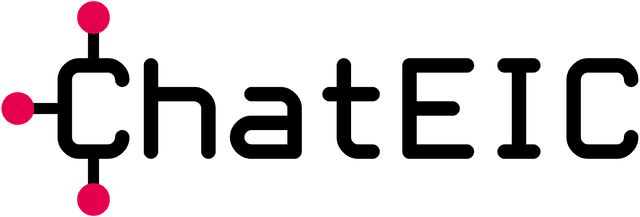
Zombie Innovation: EIC Accelerator Funding for the Living Dead
The EIC Accelerator funding (grant and equity, with blended financing option) by the European Commission (EC) and European Innovation Council (EIC) is designed for startups and Small- and Medium-Sized Enterprises (SME) and provides €2.5 million in grant and €15 million in venture financing per project.
This article investigates the importance of timing and market alignment to assess the future potential of a company.
Timing is Everything
The EIC is generally looking for dynamic companies that are young (i.e. 50% are under 10 years old), timely and have high growth potential. Since timing is a critical component of every new technology development and commercialization, an EIC Accelerator project should generally present a time-limited opportunity to invest in the next big thing.
The timing will often be influenced by factors such as regulatory trends (i.e. climate change), new technology breakthroughs (i.e. scientific developments) or an increased consumer and market demand (i.e. semiconductors).
As a result, timing is generally a critical component since it means that there is a strong reason to assume that there will be a significant business opportunity and product market fit in the future even if the company is in the early stages and revenues have remained elusive.
The Living Dead
In contrast to the case described above with excellent timing, there are companies that have been around for a long time, have been continually developing a new ground-breaking technology and have filed an endless number of patents to support their commercial exploitation but without a clear product-market fit.
There is no real timing for their solution, no apparent market need and no regulatory pressure to implement the product.
Additionally, they often have a track record of starting and stopping their developments based on their funding status whereas a new fund-raising round will spring a phase of excitement followed by months or years of silence once the funding runs out.
And the technology developments are never quite finished.
Traction: A Zombies Cryptonite
Obtaining early revenues is not always feasible, especially in medical technology or hardware-heavy industries where certifications and regulatory clearance are essential but a company should aim to generate revenues as quickly as possible.
If a company has a finished prototype that can be commercialized to some degree then they should aim to generate revenues as quickly as possible to validate the product-market fit. If a product can be purchased but is not in demand then this generally reveals a poor investment opportunity.
Alternatively, the first step can also consist of prototype testing with customers or end-users to demonstrate the market need and usability even if no revenues are generated. But this should not be an excuse to hand out the product for free since no customer would buy it.
Zombie Innovation
Zombie Innovators generally lack the commercial expertise, customer demand or market incentives to generate any traction which leads to a bottomless budget for research and development that every investor will stay away from.
In their business plans, such companies will often highlight their technology, Intellectual Property (IP) and related benefits (i.e. sustainability, energy, costs) but they will rarely mention customer demand or pilot customer negotiations.
Any commercial plan will likely be reduced to the inflated market size with little or no practical plan to reach it or evidence that the market has an interest in the product.
Do Not Bite the Zombie
As a consultant, professional writer or freelancer, it is essential to identify Zombie Innovators quickly and to assess their level of traction as well as their utilization of past financing, especially when targeting the EIC Accelerator program. If investors avoid such businesses then so will the EIC Jury.
Even if early revenues are impossible, there should be an extensive number of customer relationships, early testing with end-users, agreements with value chain stakeholders and impressive Letters of Intent (LOI) to demonstrate the market need.
Zombie Innovators generally have none of these.
These tips are not only useful for European startups, professional writers, consultants and Small and Medium-Sized Enterprises (SME) but are generally recommended when writing a business plan or investor documents.
Deadlines: Post-Horizon 2020, the EIC Accelerator accepts Step 1 submissions now while the deadlines for the full applications (Step 2) under Horizon Europe are listed below. The Step 1 applications must be submitted weeks in advance of Step 2. The next EIC Accelerator cut-off for Step 2 (full proposal) can be found here. After Brexit, UK companies can still apply to the EIC Accelerator under Horizon Europe albeit with non-dilutive grant applications only - thereby excluding equity-financing. Switzerland has resumed its participation in Horizon Europe and is now eligible for the EIC Accelerator.
EIC Accelerator Step 1 Deadline 2025
Contact: You can reach out to us via this contact form to work with a professional consultant.
AI Grant Writer: ChatEIC is a fully automated EIC Accelerator grant proposal writer: Get it here.
EIC Accelerator: EIC Accelerator delivers flexible funding options including blended finance (€2.5M grant + €0.5M-€10M equity), grant-only (up to €2.5M), or equity-only arrangements for scale-up and market deployment of breakthrough innovations. The initiative targets SMEs, start-ups, and small mid-caps with up to 499 employees. Technology areas include Biotech, Engineering, Artificial Intelligence, Energy, Quantum, Aerospace, Advanced Materials, and Semiconductors. Get Started
EIC Pathfinder: EIC Pathfinder delivers up to €3 million for Open calls and up to €4 million for Challenge-based calls to support early-stage research and development with proof-of-principle validation. The initiative requires research consortia with a minimum of 3 partners from 3 different countries, including universities, research organizations, and SMEs. Primary technology focus areas include Health/Medical, Quantum Technologies, AI, Environmental/Energy, and Advanced Materials. Get Started
EIC Transition: EIC Transition delivers up to €2.5 million in funding to overcome the 'valley of death' gap between laboratory research and market deployment, emphasizing technology maturation and validation. The initiative supports single legal entities or small consortia of 2-5 partners including SMEs, start-ups, spin-offs, and research organizations. Key technology domains include Health/Medical Technologies, Green/Environmental Innovation, Digital/Microelectronics, Quantum Technologies, and AI/Robotics. Get Started
EIC STEP Scale-Up: EIC STEP Scale-Up delivers significant equity investments of €10-30 million for established deep-tech companies prepared for hyper-growth and large-scale expansion. The initiative targets SMEs or small mid-caps with up to 499 employees who have obtained pre-commitment from qualified investors. Primary focus areas include Digital & Deep Tech (Semiconductors, AI, Quantum), Clean Technologies for Net-Zero objectives, and Biotechnologies. Get Started
EIC Pre-Accelerator: EIC Pre-Accelerator represents a pilot initiative delivering €300,000-€500,000 in funding for early-stage deep-tech development and preparation for the EIC Accelerator program. This program is exclusively accessible to single SMEs or small mid-caps from 'Widening countries' to foster regional innovation development. The initiative encompasses deep-tech innovations across physical, biological, and digital domains. Get Started
EIC Advanced Innovation Challenges: EIC Advanced Innovation Challenges represents a new pilot initiative delivering €300,000 (Stage 1) and up to €2.5 million (Stage 2) for breakthrough deep-tech innovations through ARPA-style staged funding mechanisms with integrated demand-side engagement. This initiative targets single entities or small consortia (2-3 partners) including SMEs, start-ups, and research organizations. Primary focus areas include Physical AI for autonomous robotics applications and New Approach Methodologies (NAMs) for animal-free biomedical testing, with TRL 4 entry requirements and demonstrated end-user commitment. Get Started
Eureka Network: The Eureka Network delivers various international collaborative R&D initiatives such as Network Projects, Clusters, Eurostars, Globalstars, and Innowwide, providing funding from €50K to €6.75M per project based on the specific initiative. This network emphasizes market-driven innovation and deep-tech advancement across multiple technology sectors including ICT/Digital, Industrial/Manufacturing, Bio/Medical Technologies, Energy/Environment, Quantum, AI, and Circular Economy. Eligible participants include SMEs, large enterprises, research organizations, universities, and startups, with Eurostars particularly focused on R&D-performing SMEs. Get Started
Eurostars: Eurostars represents a joint EU-Eureka initiative delivering €50K-€500K for international R&D collaboration specifically led by SMEs. The program adopts a bottom-up approach, accepting projects from all technology fields without predefined thematic restrictions. R&D-performing SMEs must lead the consortium and demonstrate significant R&D activities. Get Started
Innovation Partnership: Innovation Partnership enables collaborative innovation between public and private sectors with typical funding of €1-5 million per project. The initiative supports cross-sectoral strategic technologies through public-private partnerships and consortia. Projects concentrate on addressing societal challenges through collaborative innovation approaches. Get Started
Innovation Fund: The EU Innovation Fund delivers substantial funding of €7.5 million to €300 million for large-scale demonstration of innovative low-carbon technologies. The initiative targets clean energy, carbon capture, renewable energy, and energy storage technologies to accelerate the transition to a low-carbon economy. Eligible participants include large companies, consortia, and public entities capable of implementing large-scale demonstration projects. Get Started
Innovate UK: Innovate UK delivers various programs with funding ranging from £25K to £10M depending on the specific initiative, supporting business-led innovation, collaborative R&D, and knowledge transfer. The organization funds projects across all sectors with particular emphasis on emerging technologies and supports UK-based businesses, research organizations, and universities. Programs are designed to drive economic growth through innovation and technology commercialization. Get Started
Industrial Partnership: Industrial Partnership delivers €2-10 million in funding for industrial research and innovation partnerships focusing on manufacturing, industrial technologies, and digital transformation. The initiative supports industrial consortia and research organizations in developing collaborative solutions for industrial challenges. Projects aim to strengthen European industrial competitiveness through strategic partnerships. Get Started
LIFE Programme: The LIFE Programme delivers €1-10 million in funding for environmental protection, climate action, and nature conservation projects across the European Union. The initiative supports environmental technologies, climate adaptation strategies, and biodiversity conservation initiatives. Eligible participants include public authorities, private companies, NGOs, and research institutions working on environmental and climate challenges. Get Started
Neotec: Neotec represents a Spanish initiative delivering €250K-€1M in funding for technology-based business creation and development, supporting the growth of innovative Spanish SMEs and start-ups. The program covers all technology sectors and aims to strengthen Spain's technology ecosystem. Funding is specifically targeted at Spanish technology-based SMEs and start-ups to enhance their competitiveness and market presence. Get Started
Thematic Priorities: EU Thematic Priorities encompass various programs aligned with EU strategic priorities including green transition, digital transformation, health, and security initiatives. Funding amounts vary based on the specific program and call requirements, with projects designed to address key European challenges. Applicant eligibility varies by specific program and call, with different requirements for different thematic areas. Get Started
Any more questions? View the Frequently Asked Questions (FAQ) section.
Want to see all articles? They can be found here.
For Updates: Join this Newsletter!
